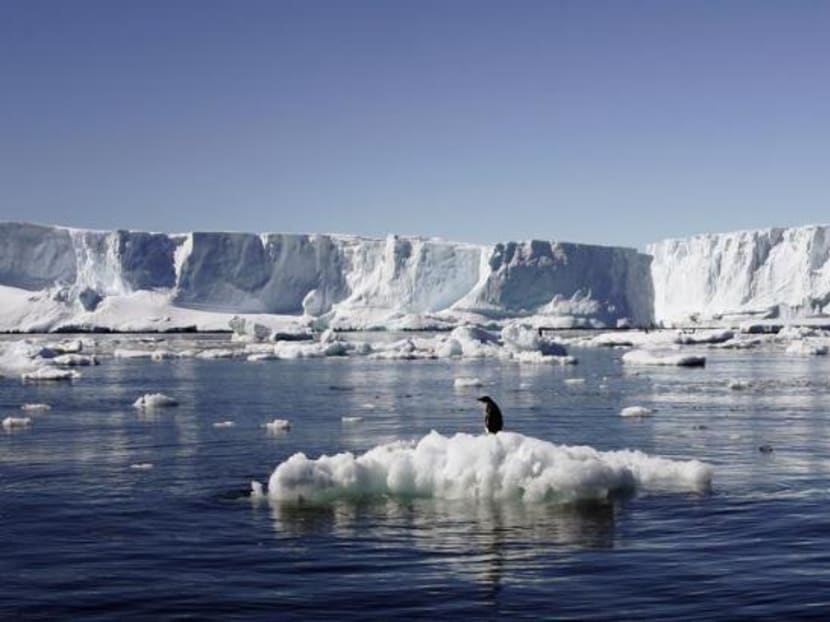Antarctica to melt without curbs on fossil fuels, study finds
NEW YORK — Burning all the Earth’s remaining coal, oil and natural gas would trigger enough warming to melt the entire Antarctic ice shelf, eventually obliterating coastal regions around the world, researchers said in a report on Friday (Sept 11).

An Adelie penguin stands atop a block of melting ice near the French station at Dumont d’Urville in East Antarctica, on Jan 23, 2010. Photo: Reuters
NEW YORK — Burning all the Earth’s remaining coal, oil and natural gas would trigger enough warming to melt the entire Antarctic ice shelf, eventually obliterating coastal regions around the world, researchers said in a report on Friday (Sept 11).
That worst-case scenario would be a long way off — several thousand years, according to computer simulations published by the journal Science Advances. Still, the results are a reminder of the potentially cataclysmic impacts of an Antarctic meltdown, according to the German, US and UK researchers. About 1 billion people live in coastal areas that would be swamped if the entire ice sheet was lost, they said.
“The west Antarctic ice sheet may already have tipped into a state of unstoppable ice loss, whether as a result of human activity or not,” Dr Anders Levermann, of the Potsdam Institute for Climate Impact Research, said in a statement. “If we want to pass on cities like Tokyo, Hong Kong, Shanghai, Calcutta, Hamburg and New York as our future heritage, we need to avoid a tipping in east Antarctica as well.”
By contrast, limiting the use of fossil fuels enough to keep global warming below the United Nations goal of 2°C would keep global sea level rise to “manageable” levels, according to the report.
UN CLIMATE TALKS
Oil, coal and gas companies are in the crosshairs worldwide, as the UN seeks to broker an agreement committing all nations to rein in greenhouse gases and activists press investors to pull money out of the fossil-fuel industry. A January study in the journal Nature estimated a third of global oil reserves, half of gas reserves and more than 80 per cent of coal deposits would have to stay in the ground to meet the 2-degree goal.
Fossil fuel companies defend their products as the most affordable energy option for developing countries seeking to pull billions of people out of poverty.
The study was the first to model the effects of unrestrained fossil-fuel consumption on not just western Antarctica but also the much larger east Antarctic, according to the scientists. While the pace of melting is hard to predict, sea levels would likely rise 30m by the end of this millennium and about twice that over “several thousand years”, the study found.
The research was partly funded by two non-profit research groups, the Carnegie Institution for Science and the Bill Gates-backed Fund for Innovative Climate & Energy Research. BLOOMBERG





